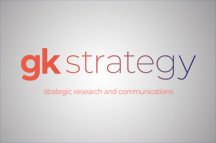COVID-19 will bring many companies across the world to the brink, as demand plunges and cash flow is squeezed. And many others, with much healthier prospects and balance sheets, will become cheaper as valuations are revised. Many private equity firms can see plenty of opportunities, but while the fundamentals of many companies will remain good, the political and regulatory environment they operate in will change profoundly and many measures announced as temporary are likely to stay. This will be true almost everywhere. With the exception of a handful of governments that have been demonstrably well-prepared, most will need to reconsider support for individuals and businesses as the crisis has exposed how many are dangerously exposed to cash flow problems. The political and regulatory risks and opportunities in a variety of sectors have changed significantly since February, and further change can be expected; risks will take far more effort to quantify, and genuine political uncertainty will abound. Investors will need to make sure that they are working to understand these changes.
Debate over self-employed reflects wider uncertainty from policy-makers
Yesterday’s announcement from the Chancellor on support for the self-employed has been long-awaited. Dissatisfaction over the length of time this has taken is indicative of a wider problem in government over the course of the last decade; the struggle to understand fully, or know how to engage with, the self-employed population. Initiatives like the Taylor Review have helped the Government to gain a clearer picture of the contemporary labour market and the growth of particular working practices over recent years, but the ever-growing diversity of the self-employed frequently presents challenges to policy-makers that they are slow to answer. The delays in announcing support for the self-employed demonstrate not only the difficulty of producing a solution in this type of crisis that adequately supports all of those engaged in ‘non-traditional’ forms of work, but also longer-term historical indecision over elements of the taxation and regulation of these types of work. It is just one of the areas of government policy in which permanent change can be expected as a consequence of this crisis.
Payment in advance rules waived for local government suppliers
Another of the areas likely to be impacted over the longer-term by the COVID-19 crisis is public procurement. Already under political scrutiny, the current situation may change some of the terms of the debate underway in Government and Parliament. This week, the Cabinet Office has announced that rules on payment in advance for local authority suppliers – normally prohibited without express consent from the Treasury – will be waived to allow early payment of suppliers if the authority’s accounting officer is satisfied of the business case for doing so. The Government has also encouraged local authorities to be prepared to offer suppliers other relief against their contractual terms if necessary. Such moves may prompt both central and local government to think differently about supplier relationships and contracts, as well as some of the political and parliamentary critics of the Government’s approach to procurement and outsourcing. This will be an area for interested businesses with an interest to keep a close eye on.
Jamie Cater, the brains behind a lot of GK’s thinking, leads our policy work across the entire business, supporting our strategic communications work and providing strategic advice to investors during M&A activity.












